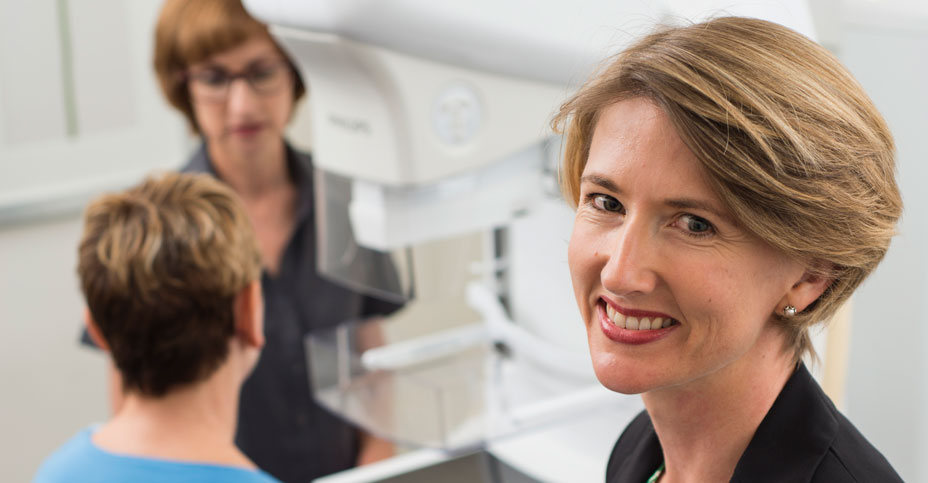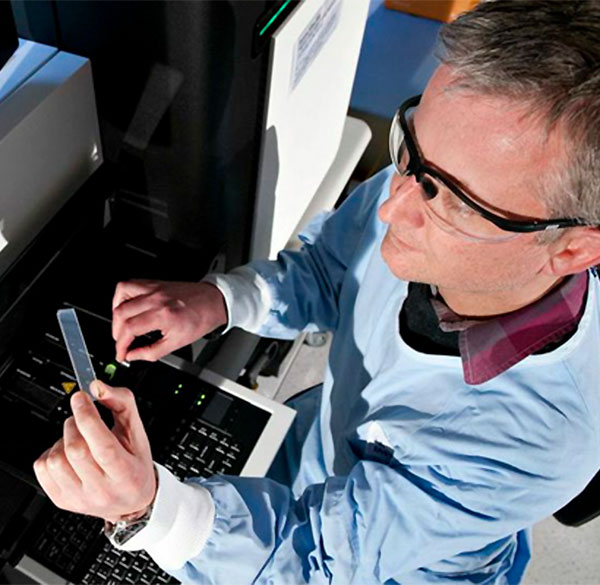
Dr Liz Buckley, Research Fellow at the University of South Australia’s Cancer Epidemiology & Population Health Research Group
Dr Liz Buckley is exploring ways for medical professionals to better predict which breast cancers will become life threatening compared with those that will not require invasive treatment.
Breast cancer is the most common cancer among Australian women, with one in eight being diagnosed with the disease by the time they turn eighty-five. But thanks to advances in research, screening and treatment, more patients are likely to live longer and fewer women are dying from it than ever before. While mortality rates are declining, the number of women diagnosed continues to rise due to increased awareness of early detection and mammography screening.
Dr Buckley, Research Fellow at the University of South Australia’s (UniSA) Cancer Epidemiology & Population Health Research Group, completed her PhD at UniSA in 2015. Her thesis explored the prominent issue of over-diagnosis and over-treatment in women with cancers that may not have grown or become life-threatening if left undiscovered.
“There is a lot of uncertainty about whether certain high risk lesions, such as atypical hyperplasia and ductal carcinoma in-situ, increase the risk of breast cancer enough so as to warrant treatment,” says Dr Buckley, who focused her research on Australian women at high risk of developing breast cancer, such as women previously diagnosed with benign or non-cancerous breast diseases.
“There is some evidence that suggests some women will go on to develop invasive breast cancer, but this is not the case for all women.”
As a consequence of the high risk of cancer following breast disease, most women are treated as if they have early invasive breast cancer. This means women who were unlikely to develop cancer, are receiving treatment that they would not necessarily need.
Before working within the Centre for Population Health Research, Dr Buckley conducted Health Technology Assessments for the Commonwealth Government, and assessed evidence relating to the safety, effectiveness and cost-effectiveness of digital mammography.
Dr Buckley learned a lot about the difficulties in introducing a screening program that provided clear benefits to women while minimising potential harms. However, she became aware of the concerns surrounding over-diagnosis of breast cancer and realised that mammography isn’t necessarily a perfect screening test.
“If there was a way to identify which of those women would develop invasive breast cancer, then treatment could be provided to only those women, and any harm from over-treatment could be avoided.”
Despite advancements, there still remain extensive gaps in breast cancer research. Dr Buckley is continuing her work by exploring the disease among South Australian Indigenous women, who are less likely to develop breast cancer in their lifetime, but if they do, they have poorer survival prospects. Dr Buckley is working to understand not only breast cancer epidemiology in Indigenous women but also how the screening process works for this group of women.

When you give today, 100% of your donation will go directly to the researchers - with no admin fees or hidden costs.
The University of South Australia (UniSA) is committed to tackling one of our most challenging diseases – cancer – by establishing the largest cohort of cancer researchers ever assembled in South Australia. Every day our experts are getting one-step closer to saving more lives as well as improving the quality of life for cancer survivors. But they need your help.
